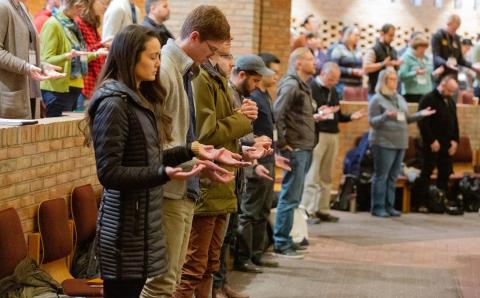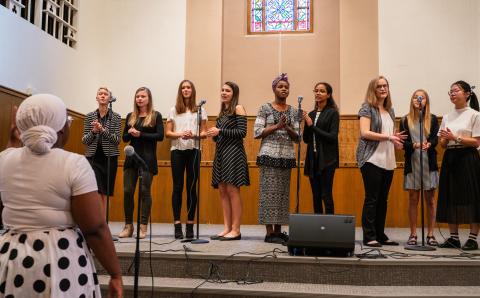There are people I’ve come in contact with at my church who are rude and generally unfriendly. Shouldn’t Christians be friendly?
Paul tells the Christians in Rome to “be devoted to one another in love” (Rom. 12:10), and to those in Galatia, he says that “kindness” is something the Holy Spirit produces in us (Gal. 5:22). While friendliness and kindness—a sort of warmth toward others—is not the best-known of the virtues or moral excellences, they are still qualities that God presumably has and values and also wants us to have and value.
However, we need to pay attention to Paul’s language: Moral virtue is at once something that God produces in us and at the same time something we need to work at. Moral character, in other words, is a work in progress.
Moreover, because we are all works in progress, we are also different in respect to what virtues, if any, we possess. Daryl, for example, might have spent a lifetime becoming courageous and can now boldly speak a word of truth. At the same time, he may not have made much progress along the path of kindness, and so speaks his word of truth with callousness. Morgan might have spent many years developing a warmth toward others, yet still only have a poor palate for justice and so might be unwilling to vote to excommunicate the obstinate (1 Cor. 5:11-13). Ultimately, of course, God calls us to “be perfect, as your heavenly Father is perfect” (Matt. 5:48). We all are called to all the virtues, and one day—not in these shadowlands, but one day—the Daryls will be brave and kind and the Morgans kind and just. But that day has not yet come, and the Christ vaccine, though in us, works its way slowly through us.
There is also something not mentioned directly by Paul, but I think worth adding: While God and the individual are the most important persons in the development of a virtue like kindness, we can aid our brothers and sisters along this road. Remember the Phantom of the Opera? His incivility was overcome in the end partly by Christine’s act of supernaturally produced kindness.
About the Author
Adam Barkman is a professor of philosophy at Redeemer University College.







